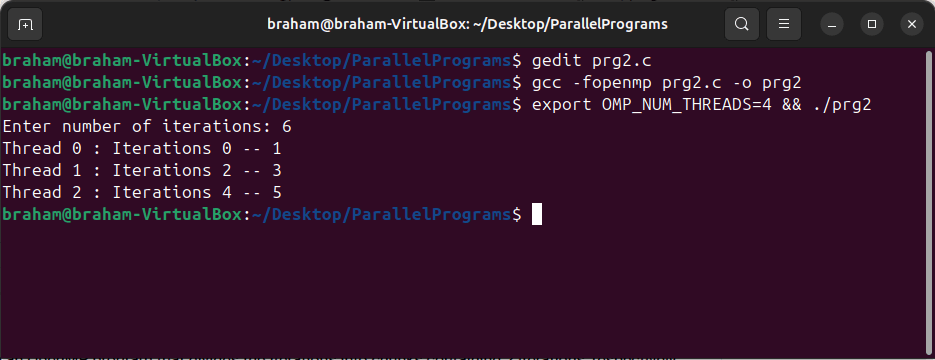2. Write an OpenMP program that divides the Iterations into chunks containing 2 iterations, respectively (OMP_SCHEDULE=static,2). Its input should be the number of iterations, and its output should be which iterations of a parallelized for loop are executed by which thread. For example, if there are two threads and four iterations, the output might be the following:
a. Thread 0 : Iterations 0 −− 1
b. Thread 1 : Iterations 2 −− 3
COMMAND:
- Create:
gedit prg2.c - Compile:
gcc -fopenmp prg2.c -o prg2 - Run:
export OMP_NUM_THREADS=4 && ./prg2
PROGRAM:
#include <stdio.h>
#include <omp.h>
int main() {
int n;
printf("Enter number of iterations: ");
scanf("%d", &n);
int thread_start[100], thread_end[100];
int i;
for (i = 0; i < 100; i++) {
thread_start[i] = -1;
thread_end[i] = -1;
}
#pragma omp parallel for schedule(static,2)
for (i = 0; i < n; i++) {
int tid = omp_get_thread_num();
if (thread_start[tid] == -1)
thread_start[tid] = i;
thread_end[tid] = i;
}
for (i = 0; i < 100; i++) {
if (thread_start[i] != -1) {
printf("Thread %d : Iterations %d -- %d\n", i, thread_start[i], thread_end[i]);
}
}
return 0;
}
OUTPUT:

